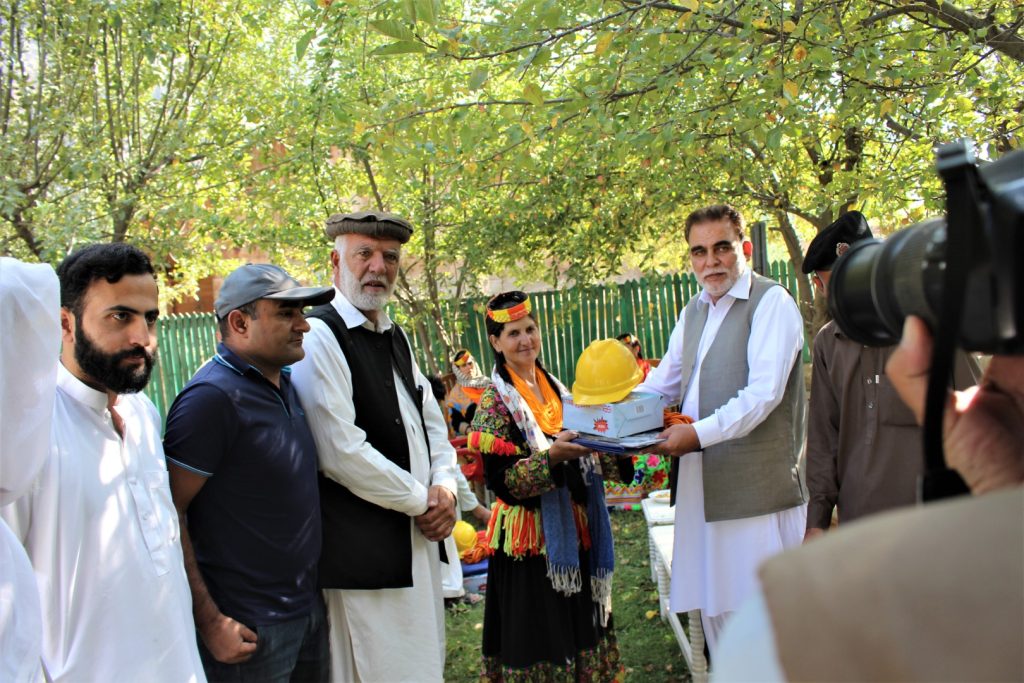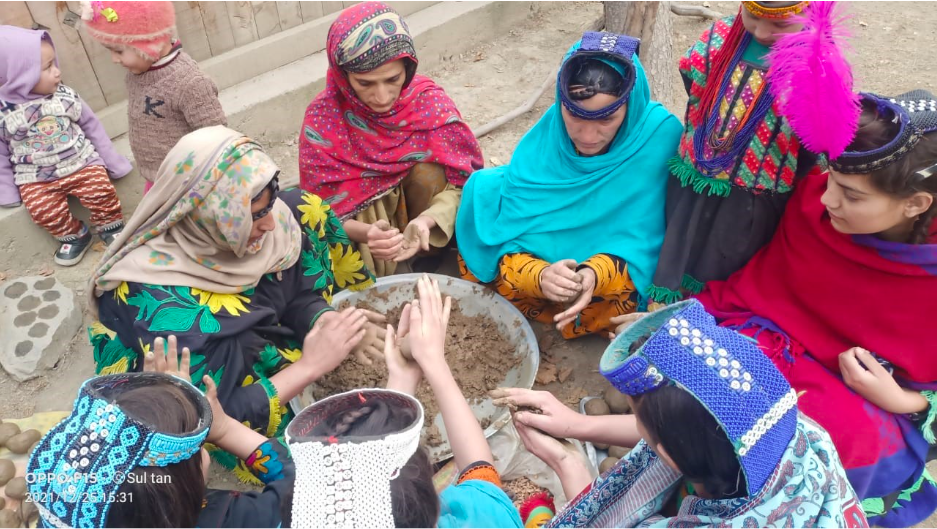The chilgoza pine forests of Northern Pakistan, located in the Hindukush-Karakoram-Himalaya region, are undergoing a significant transformation through the efforts of the Restoration Initiative (TRI). These forests, which provide valuable resources such as pine nuts, face threats from illegal harvesting and overexploitation. They are also essential for local biodiversity, including endangered species like the snow leopard, and provide valuable resources such as chilgoza pine nuts, which are a significant source of income for local communities. TRI’s project aims to restore these vital ecosystems by promoting sustainable harvesting practices, establishing forest protection committees, and supporting natural regeneration.
Sustainable Harvesting of Chilgoza Pine Nuts
Since its inception, the TRI project in Pakistan has made notable progress in restoring degraded landscapes. The project has successfully brought 5,279 hectares of land under restoration, and improved the management of 66,756 hectares. These restoration efforts have provided essential ecosystem services, including carbon sequestration, soil stabilization, and enhanced biodiversity.
Community involvement has been a cornerstone of the project’s success. The project has benefited 30,388 direct beneficiaries through various training sessions, capacity-building activities, and support for income-generating activities. The introduction of chilgoza pine nut processing units has been a game-changer for local communities. These units have enabled locals to add value to their harvests, significantly increasing their income. In 2021 and 2022, the collective production and processing units yielded 24,709.3 metric tons of chilgoza, generating a noteworthy revenue of Rs. 149.07 million (roughly USD 1.8 million) for the local communities and stakeholders involved in this value chain.
To address varying contextual challenges to effective restoration, the project has employed a central focus surrounding the development of community forests and the promotion of sustainable agricultural practices. Locals have been heavily integrated into the restoration process in Northern Pakistan and have propelled the project in a direction of immense promise, with the effective implementation of very large-scale reforestation strategies and introduction of ‘Protection Committees’ to ensure the maintenance of the pine forests. The process has also included the establishment of nurseries to produce millions of seedlings, the implementation of ecosystem restoration with local species, newfound forest management plans, and the introduction of new pine nut processing units to increase yields and productivity.
Another resounding success of TRI’s project in Pakistan has been its contribution to policy development. The project has facilitated the creation of three policies to support FLR, including a Forest Management and Utilization Plan for Balochistan covering 26,000 hectares. These policies provide a robust framework for the sustainable management and restoration of forest ecosystems, ensuring the long-term sustainability of the project’s positive impacts.
Economic Benefits of Forest Restoration
The TRI project in Pakistan stands as a testament to the potential of integrated restoration approaches in transforming degraded landscapes into vibrant, productive ecosystems. By combining forest restoration with sustainable livelihood activities, the project not only enhances ecological resilience but also provides sustainable livelihood opportunities for local communities, such as the income generated through the development of processing techniques in pine nut harvesting.
TRI aims to further scale up restoration efforts by securing additional funding to sustain and expand project activities, with representatives from TRI Pakistan submitting a proposal on Forest Ecosystem Restoration under the remaining GEF8 star allocation for social, economic and ecological benefits in moist temperate forests of Khyber Pakhtunkhwa and Punjab. The project team will continue to support local applications of restoration plans while assisting experts in summarizing and compiling successful practices. This approach will ensure that the valuable experiences gained from the project can be leveraged to support other regions in the long term.

